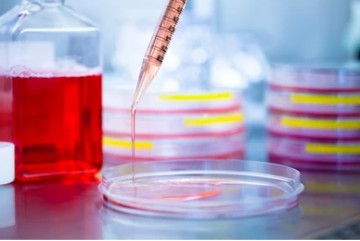The development of innovations in cultured meat has accelerated rapidly in recent years, offering the potential for more sustainable, ethical, resilient, and healthy food systems. There are still technical barriers that prevent the large-scale commercialization of cultured meat, many of which are related to the culture media used to culture muscle, fat, and connective tissue cells. Although animal cell culture media has been used and refined for about a century, it has not been specifically designed for the requirements of cultured meat. Cultures of meat-related cells such as muscle satellite cells have traditionally relied on fetal bovine serum (FBS), a notoriously expensive, unsustainable, and inconsistent component that is inherently counter to the goal of culturing meat. In addition. Exploring serum-free media for satellite cell expansion is challenging, and serum-free media has not yet been validated to expand satellite cells over multiple passages consistently.

The culture medium is one of the key components of cell-cultured meat production. To culture stem cells into muscle and adipose mass, you need a nutritional serum to feed and culture the cells. Faced with the challenge of fetal bovine serum, Lifeasible, the ideal partner for cultured meat is committed to developing alternative growth media for cultured meat production. Our customized solutions enable the production of food-grade media at the lowest cost that can regulate large-scale cell proliferation and differentiation with acceptable organoleptic quality. Our cell culture media consists of two groups of components customized for specific cell or species types:
Our team of experts has extensive knowledge of traditional media applications and the metabolic pathways involved in myogenesis and protein synthesis. It can provide insight into strategies to achieve media formulations with these qualities.
Our scientists are experimenting with algae to create media and scaffolds for their cell-based meat products.
We screen for effective microbial species to design media for cultured meat production.
We experiment with platelet lysates to create serum-free culture meat media.
We use knockout serum replacements for a single-cell type. When used with the appropriate base medium formulation and added growth factors, knockout serum replacement stimulates embryonic stem cell self-renewal and maintains pluripotency over time.
We develop multiple methods to obtain desired performance results through formulation optimization. Lifeasible is designed to help customers design culture media formulations free of animal-derived materials. To advance technical solutions for the culture meat industry, we leverage our company's expertise and capabilities as a leading raw material supplier to the biopharmaceutical industry. We guarantee access to cell culture media at competitive prices, with short turnaround times and reliable results. Feel free to contact us for more information.
Reference